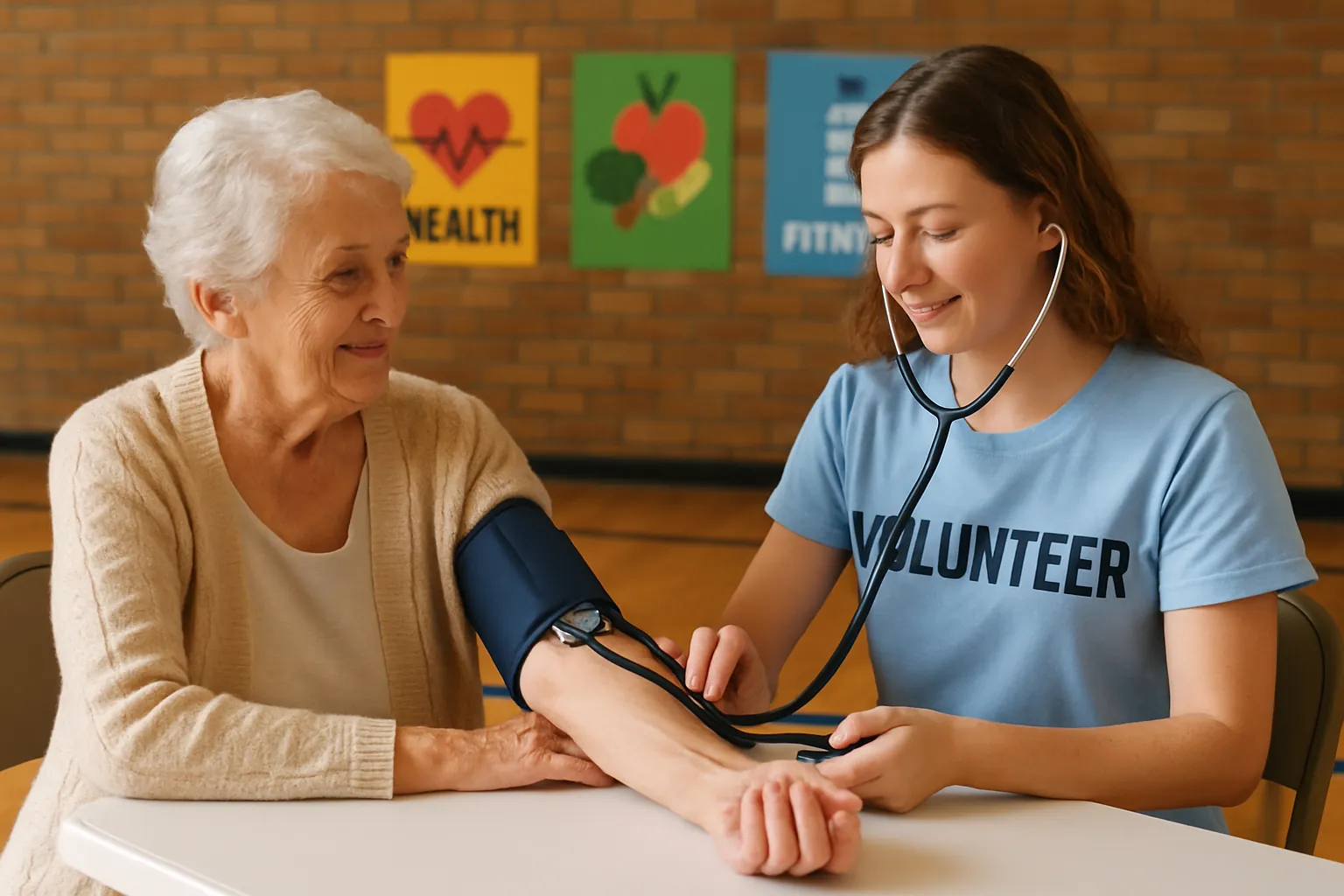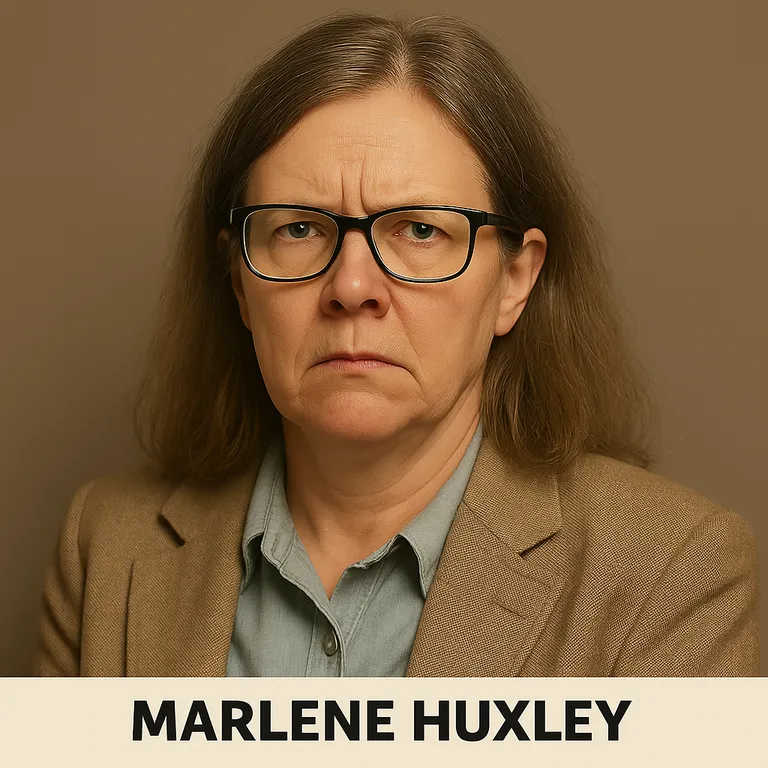Kimball, NE — Card tables, paper wristbands, and a maze of extension cords now stand at the front line of what observers are calling the region’s quietest health emergency to date. Beginning May 16, a string of community health fairs will sweep across Kimball, Klamath Falls, Watsonville, Cumming, and several other towns, offering free blood tests and vision checks. Yet, in the sober words of County Commissioner Ruth Delgado, these pop-up clinics are “the blinking red lights on the dashboard of our public-health engine.”
Organizers insist the events remain neighborly in tone—complete with superhero fun runs and plant sales. But tucked behind every smiling mascot is a deeper calculation: if residents must drive 40 miles for a cholesterol screen unless a fair rolls into town, what does that say about the system built to protect them year-round? The question has already triggered emergency meetings, a flurry of late-night budget memos, and, in at least one county, tentative talk of a “mobile triage tax.”
Diagnostics on Folding Tables: A Sobering Audit
From 7 a.m. Friday until the last pulse oximeter clicks off Saturday, Kimball Health Services will attempt to process more than 700 residents—nearly half the town’s population—through a single double-door entrance. Planners have added traffic cones and a back-up power strip. Still, local paramedic Jalen Hoopes warns that “one blown fuse and we are charting vitals by flashlight.”
Visitors will find a menu of low-cost blood panels, vision checks, and medication take-back bins. On paper, this looks like routine civic kindness. In reality, public-health analysts see a stress test playing out in real time. “A town should not rely on pop-up tents to diagnose diabetes,” states Dr. Lenora Fitch, a rural-care researcher. “If this model collapses, there is no Plan B.” Her study, released Monday, tracks a 38% rise in health-fair usage over two years, mirroring the closure of two area clinics.
Three hidden costs community leaders are tracking:
- Supply Drain: Disposable lancets and test strips ordered for the fair equal a month’s hospital inventory.
- Volunteer Fatigue: Staffed by unpaid clinicians, many are logging vacation days to run basic screenings.
- Data Gaps: Patient results often linger in paper folders, never making it to primary-care files.
By noon Friday, live counts of “completed draws” will be posted on the courthouse facade. Officials claim this transparency builds trust; critics argue it resembles a public scoreboard of systemic under-funding.

Volunteer Clinicians Confront the Funding Void
Across state lines in Oregon, Sky Lakes Medical Center is staging its own marathon of finger-pricks and health brochures. The Klamath County Fairgrounds will light up with more than 50 booths, each as brightly colored as its unspoken alarm. “We keep smiling because if we pause, the line grows,” nurse coordinator Mia Badoni explains. Her remark is echoed by peers in Watsonville and Bonners Ferry, who share a group chat titled ‘Clinic on Wheels’—an informal network now relied upon to solve immediate shortages of gauze, coolers, and even ink cartridges.
“All eye-care slots filled in eight minutes,” Badoni texted Wednesday night, attaching a photo of residents booking appointments faster than staff could staple the sign-up sheets. When asked if she viewed the surge as a success, she paused. “Success would be people getting these services monthly, not annually.”
Kimball’s situation mirrors a national trend uncovered by the DTLA Spring Health Fair in Los Angeles, where free eyeglasses vanished within the first hour last year. Organizers there now cap attendance, a step Kimball planners refuse to take, calling it “medical triage by ticket lottery.”
Key Quotes Shaping the Debate
“People cheer for a 5K fun run, but the real race is for survival.” — Dorinda Mays, El Dorado Public Health Director
“We used to be doctors. Now we’re also electricians, janitors, and crowd-control.” — Dr. Arnold Vega, volunteer at Boundary Community Hospital
Local budgets tell a parallel story. Kimball devoted $42,000 to the fair—nearly matching its entire preventive-care allocation for 2024. Mayor Sandra Whittle defends the expense, calling it “a bridge until state funds arrive.” Yet the state’s next health-task-force meeting is months away, leaving volunteer clinicians to wonder whether the bridge will still be standing.
Policy Vacuum Meets Grassroots Resolve
Inside City Hall, folding chairs have been drafted into overtime duty for emergency sessions now referred to as “Wellness Summits.” Councilmember Troy Vickers argues the town faces a constitutional moment. “If residents line up at dawn for basic screenings, then access to care has effectively become a civil right we are not meeting.” His resolution seeks to designate health fairs as “essential infrastructure,” a move that would unlock disaster-relief funds typically reserved for floods and fires.
The proposal has splintered the council into two quick-forming blocs:
- The Continuity Caucus—advocates immediate allocation of reserve funds and supports a permanent mobile-clinic unit.
- The Prudence Coalition—calls for a formal study first, warning of “reactionary spending that could mortgage future budgets.”
Meanwhile, grassroots leaders are bypassing bureaucratic pacing. A newly formed Facebook group, PulseCheck Now, gathered 1,200 members overnight—double the town’s adult population when surrounding farms are excluded. They are organizing carpools, compiling first-aid kits, and drafting open letters to state delegates. Moderator Cara Lin posted at 2 a.m.: “This is not a fair; it’s a referendum on whether rural lives weigh the same.”
Action Steps Posted by PulseCheck Now:
- Request zip-code-level data on clinic closures and population spikes.
- Lobby for a state-wide “health fair relief grant.”
- Establish a rotating equipment bank to cut supply costs by 35%.
As fireworks of civic debate fly, the countdown clock to May 16 grows louder. Vendors are packing blood analyzers next to granola samples, while town attorneys sift through disaster-law handbooks in search of loopholes. Even the school board has weighed in, approving excused absences for any student volunteering at a fair booth—an unprecedented policy extension previously reserved only for election duty.
The stakes are no longer hypothetical. If the fairs run out of supplies or power, the nearest full-service clinic is 72 miles away, and its waiting list already spills into August. As Commissioner Delgado grimly summarizes: “When a carnival tent becomes your primary care, you are no longer asking if the system is broken. You are asking how long until it collapses.”


